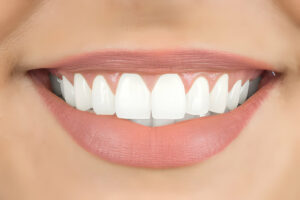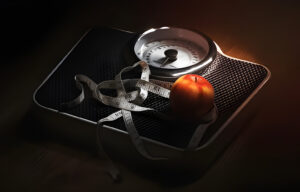Mirena is a popular intrauterine device (IUD) used for long-term, reversible birth control. It releases a low dose of the progestin hormone levonorgestrel to prevent pregnancy. While Mirena is a highly effective contraceptive option, some women experience weight gain after insertion. This article explores the potential link between Mirena and Mirena Weight Gain and offers guidance on maintaining a healthy weight through diet and exercise while using Mirena.
Table of Contents
ToggleMirena IUD: A Popular Birth Control Choice
The Mirena IUD is a T-shaped device inserted into the uterus by a healthcare professional. It’s effective for up to five years, making it a convenient and long-lasting birth control option [1]. Mirena is highly effective at preventing pregnancy, with a typical failure rate of less than 0.2% per year [2].
Mirena Weight Gain: Fact or Fiction?
The question of whether Mirena causes weight gain is a common concern. Research suggests a possible connection, but the evidence needs to be more conclusive. A review by the National Collaborating Centre for Women’s and Children’s Health found no clear link between hormonal IUDs like Mirena and significant weight gain. However, some studies suggest a slight increase in body weight, potentially due to water retention caused by the progestin hormone.
Here’s what’s important to remember:
- Gaining weight is a complicated problem influenced by several variables, including age, genetics, nutrition, and activity.
- Many women experience weight gain during their reproductive years, regardless of their birth control method [5].
If you’re concerned about weight gain after starting Mirena, discuss it with your doctor. They can help you determine if Mirena contributes to your weight changes and explore alternative explanations.
Understanding Mirena and Weight Gain
While the link between Mirena and weight gain isn’t fully understood, here are some potential explanations:
- Water Retention: Progestin in Mirena can cause temporary water retention, slightly increasing weight on the scale. This is usually temporary and shouldn’t be a long-term concern.
- Appetite Changes: Some women using Mirena report increased appetite, which could potentially lead to higher calorie intake and weight gain if not balanced with exercise.
It’s important to note that these are potential explanations, and individual experiences may vary.
Diet and Exercise: Taking Control of Your Weight
Regardless of your birth control method, maintaining a healthy weight is crucial for overall well-being. Here’s how diet and exercise can help you manage your weight while using Mirena:
Weight Loss on Mirena: Is it Possible?
Absolutely! Mirena doesn’t prevent weight loss. You can achieve your weight management goals by focusing on healthy eating and regular exercise.
Healthy Weight Management with Mirena: Diet Tips for Success
- Focus on Whole Foods: Prioritize fruits, vegetables, whole grains, and lean protein sources. These foods are nutrient-rich and keep you full longer, reducing the urge to overeat.
- Portion Control: Be mindful of portion sizes. Use smaller bowls and plates to prevent inadvertent overindulgence in food.
- Limit Processed Foods: Processed foods are typically heavy in added sugar, harmful fats, and calories. Whenever feasible, choose healthier options.
- Stay Hydrated: Getting enough water in your diet might help reduce cravings and increase feelings of fullness.
Exercise for Weight Loss with Mirena: Finding the Right Fit
Try to get in at least 150 minutes a week of moderate-to-intense aerobic exercise or 75 minutes a week of vigorous aerobic activity [12]. Here are a few choices:
- Brisk Walking or Running: These are excellent ways to burn calories and improve cardiovascular health.
- Strength Training: Building muscle mass can help boost your metabolism and burn more calories even at rest.
- Find Activities You Enjoy: Choose fun and sustainable activities to maintain long-term consistency.
Mirena and Weight Management: FAQs
Here are some frequently asked questions about Mirena and weight management:
- Best Diet for Weight Loss with Mirena: There isn’t a universal solution. Portion control and a well-balanced diet full of nutritious foods are essential. When seeking individualized advice, think about speaking with a licensed dietician.
- Does Mirena Make it Harder to Lose Weight? Research needs to be more conclusive. While some may experience increased appetite, a healthy diet and exercise routine can still lead to weight loss.
- Healthy Eating Tips for Mirena Users: Focus on nutrient-dense whole foods, prioritize protein, stay hydrated, and limit processed foods and sugary drinks.
- Can I Lose Weight While on Mirena? Of course! Using Mirena with a dedication to a nutritious diet and regular exercise can help you reach your weight loss objectives.
Conclusion: Mirena and Weight Gain: The Final Word
Mirena may not directly cause significant weight gain, but it can lead to temporary water retention or changes in appetite in some users. However, focusing on a healthy lifestyle with balanced nutrition and regular exercise remains crucial for weight management while using Mirena. Talk to your doctor if you’re worried you might gain weight after taking Mirena. They can assist you in identifying the reason and investigating practical weight management solutions.
Taking Charge of Your Health: Mirena, Diet, and Exercise
For many women, Mirena is a safe and reliable birth control alternative. You can maintain a healthy weight and take advantage of Mirena’s benefits by being aware of the possible association between medication and weight gain and prioritizing good eating and exercise habits. To ensure a good experience with Mirena and to resolve any concerns, keep in mind that open communication with your doctor is crucial.
Additional Notes:
- This article is for informational purposes only and should not be interpreted as medical advice. Always get individual advice from your healthcare professional when it comes to birth control and weight control.
Sources
- www.calendarr.com/united-kingdom/world-obesity-day/
- www.gq.co.za/culture/fitness/how-many-days-a-week-should-you-work-out-a3ae4353-3cd6-46c5-ad60-edbf4fe6f7dd


















